By nature, eyesight will change with age. And depending on a number of variables, change will vary with each individual. With age, the ability of the eyes to focus and refocus becomes more difficult. What was once easy to see at age 25 (both far away and close up) may not be so easy at age 45. And that means wearing eyeglasses for driving, reading, or working on the computer. The fact is, physical changes in eyesight usually develop slowly over the years, and will differ in severity from men to women to youth to children.
But the most important thing is to monitor changes as they develop – each is a sign of eyesight that is weakening, and each requires personal care and attention, sometimes professional:
- more difficulty when reading small print
- more effort in adjusting from light to dark
- sensitivity to glare from the sun or lights
- trouble judging distances (depth perception)
- problems in seeing colours and contrasts
- excessively watery eyes or dry eyes
Whatever the changes in vision, symptoms can vary from mild to serious, and may even include eye disease. And because we depend on our eyes every waking moment, it’s absolutely vital to recognize changes, identify problems, and most importantly, have regular, routine eye exams. For most people, “age related” vision issues can be remedied with prescription eyeglasses, prescribed medication, or surgery. And when it comes to the growing senior population, there are a host of vision aids and community services available to improve lifestyle.
Predictably, over-50s and over-60s will be dealing with some of the more serious eye diseases. And eye care professionals know only too well that glaucoma and cataracts prevail in these age groups. In these cases, and most others, early detection is key. When diagnosed early, and addressed immediately, deteriorating eyesight (and vision loss) can be significantly corrected. For most, proper eye care and eye health maintenance are essential to preserving eyesight, but nothing can replace the professional approach for diagnosis and treatment.
Overall, it’s up to the individual to ensure optimum general health, and specifically, eye health. Regardless of age category, the fundamentals are obvious, and the rewards are clear.
General health maintenance
Managing cholesterol and blood pressure can actually improve eyesight. Indeed, there are eye diseases directly related to diabetes and high blood pressure. Collectively, eye professionals advocate for healthy blood sugar levels, steady blood pressure and balanced cholesterol.
Computers and smart devices
The negative effects of these technologies on eyesight are well documented. When focusing on a screen, especially a small screen, the tendency is NOT to blink, and over time, this has a direct affect on eye muscle fatigue and eyestrain – both affecting the eyes negatively.
Smoking (regular or occasional)
Smoking damages both the body and the eyes. The potential for cataracts and retinal disease is enhanced, and existing eye problems are exacerbated. Worst of all, smoking diminishes blood circulation, and healthy circulation is vital for the healthy functioning of eyes.
Vision should not be taken for granted. And while personal care and maintenance are crucial, so is the regular annual eye examination performed by a qualified professional.


